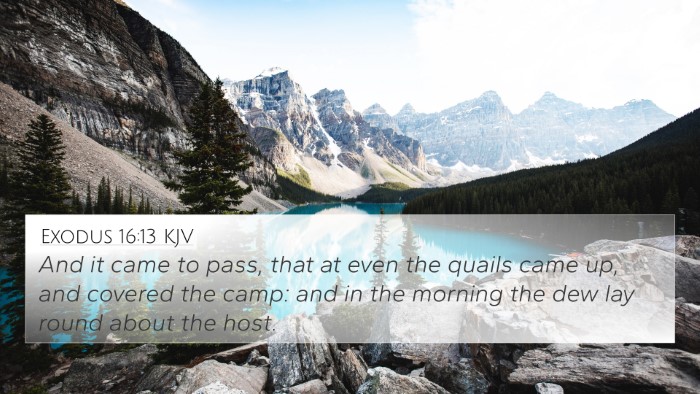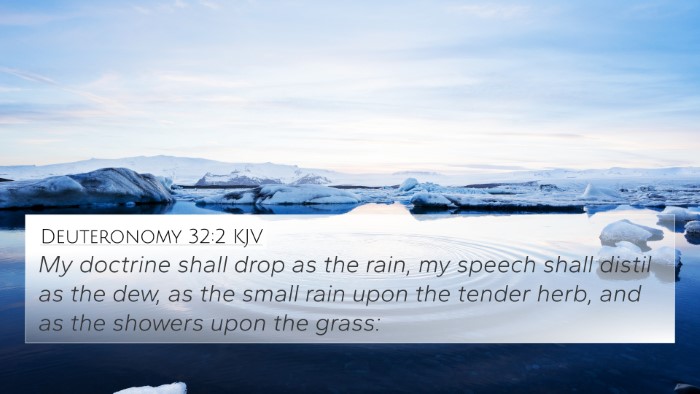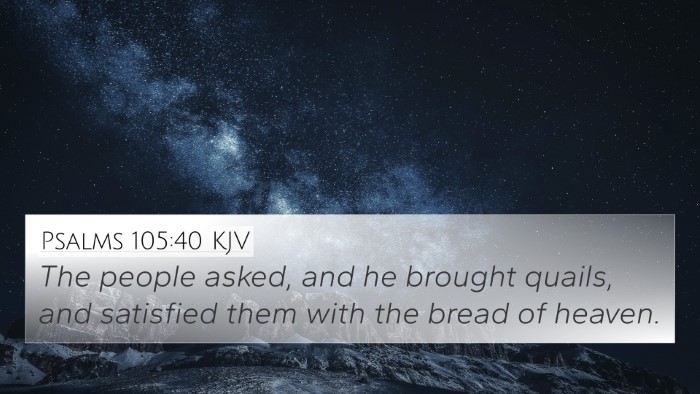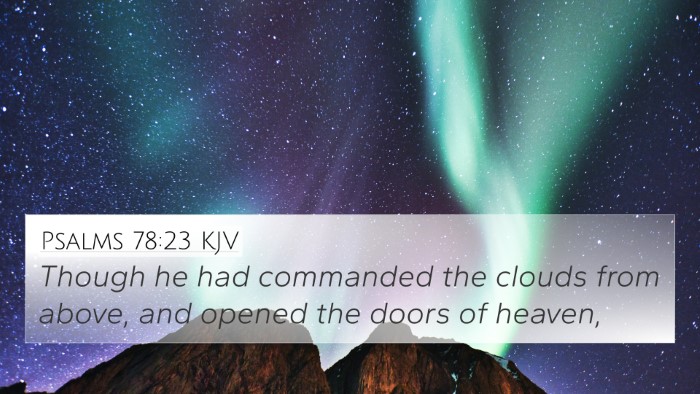Understanding Numbers 11:9
Verse Reference: Numbers 11:9 states, "And when the dew fell upon the camp in the night, the manna fell upon it." This verse describes the miraculous provision of manna for the Israelites during their journey in the wilderness.
Summary of Meaning
Numbers 11:9 illustrates God’s faithfulness and provision in times of need. During their wanderings, the Israelites often faced hunger, and God responded to their physical needs by providing manna from heaven—a substance that nourished them. This divine intervention is significant as it symbolizes God’s care, illustrating His willingness to sustain His people amid their struggles.
Insights from Commentaries
-
Matthew Henry:
Henry describes the manna as a type of heavenly food, emphasizing its supernatural origin and the daily provision by God for His people. He points to the importance of faith in this provision, suggesting that the Israelites were to rely on God for their daily sustenance, which represents spiritual nourishment and dependence on divine grace.
-
Albert Barnes:
Barnes notes that the timing of the manna's fall aligns with the dew—early in the morning—noted as a sign of God’s regularity and reliability in sustenance. He highlights the spiritual implications of manna as foreshadowing Christ, the Bread of Life, drawing parallels between physical and spiritual sustenance.
-
Adam Clarke:
Clarke adds historical context, discussing the hardships faced by the Israelites and how God's provision illustrates His covenant with them. He points out the contrast between natural and supernatural provision, affirming that God’s methods often transcend human understanding, calling believers to trust in His goodness.
Thematic Connections
This verse connects with various themes in the Bible, showcasing God’s provision and the nature of faith. It encourages readers to understand how God meets their needs according to His divine wisdom.
Related Cross References
- Exodus 16:4: God promises bread from heaven.
- John 6:33: Jesus is described as the bread of God that came down from heaven.
- Psalm 105:40: Reflects on God providing abundant provisions for His people in the wilderness.
- Matthew 6:11: "Give us this day our daily bread" emphasizes daily reliance on God for physical needs.
- Deuteronomy 8:3: God provided manna to teach the Israelites dependence on Him.
- Philippians 4:19: God promises to supply all needs according to His riches in glory.
- Revelation 2:17: The promise of hidden manna as a reward for believers.
Conclusion
In summary, Numbers 11:9 serves not only as a historical account but also offers profound insights into God’s character as a provider. It encourages a thematic understanding of biblical provision and trust that can be explored through various cross-references, linking this scripture with broader scriptural teachings. By examining these connections and parallels, believers can deepen their understanding of God's ongoing care and the spiritual sustenance He provides.






